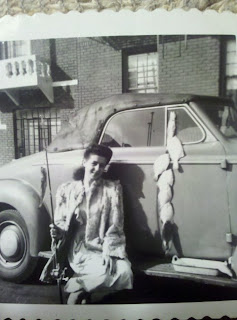"It was as touching as the glow of contentment in the eyes of the foreign immigrants in the United States during the good old days before 1929, who were entranced to find themselves where there was an abundance of food, no matter what the weather might be, warm and cheap clothing, comfortable footwear, water-tight housing, and, not easily to be acquired but within the possibility of acquirement as never in Polish Galicia or Portugal, radios, refrigerators, and automobiles. They had not realized that in this new industrialized world there are seasons other than those determined by the course of the sun, which are both crueller and longer; and that the urban versions of blizzard and drought are more terrible because they must be suffered in an absolute destitution, unknown to communities where each owns or has the right of access to at least a strip of land, and where all are joined by ties of blood or friendship cultivated through generations...
The English manufacturers of the nineteenth century had appeared as redeemers to the downtrodden agricultural labourers who were dying rather than living under a land system which would have shocked the Balkans, and who found food and warmth such as they had never known in the towns of Lancashire and Yorkshire and the Midlands; but they have no such reputations among the vast unhappy army of the unemployed. My instinct therefore was to warn the miners who were coming in at the door, grinning with happy appetite, 'Do not be deceived. Whom you suppose to be your benefactor is in fact your enemy, and will enslave you and take from your children what you never lost even under the Turk, the right to work.'"






